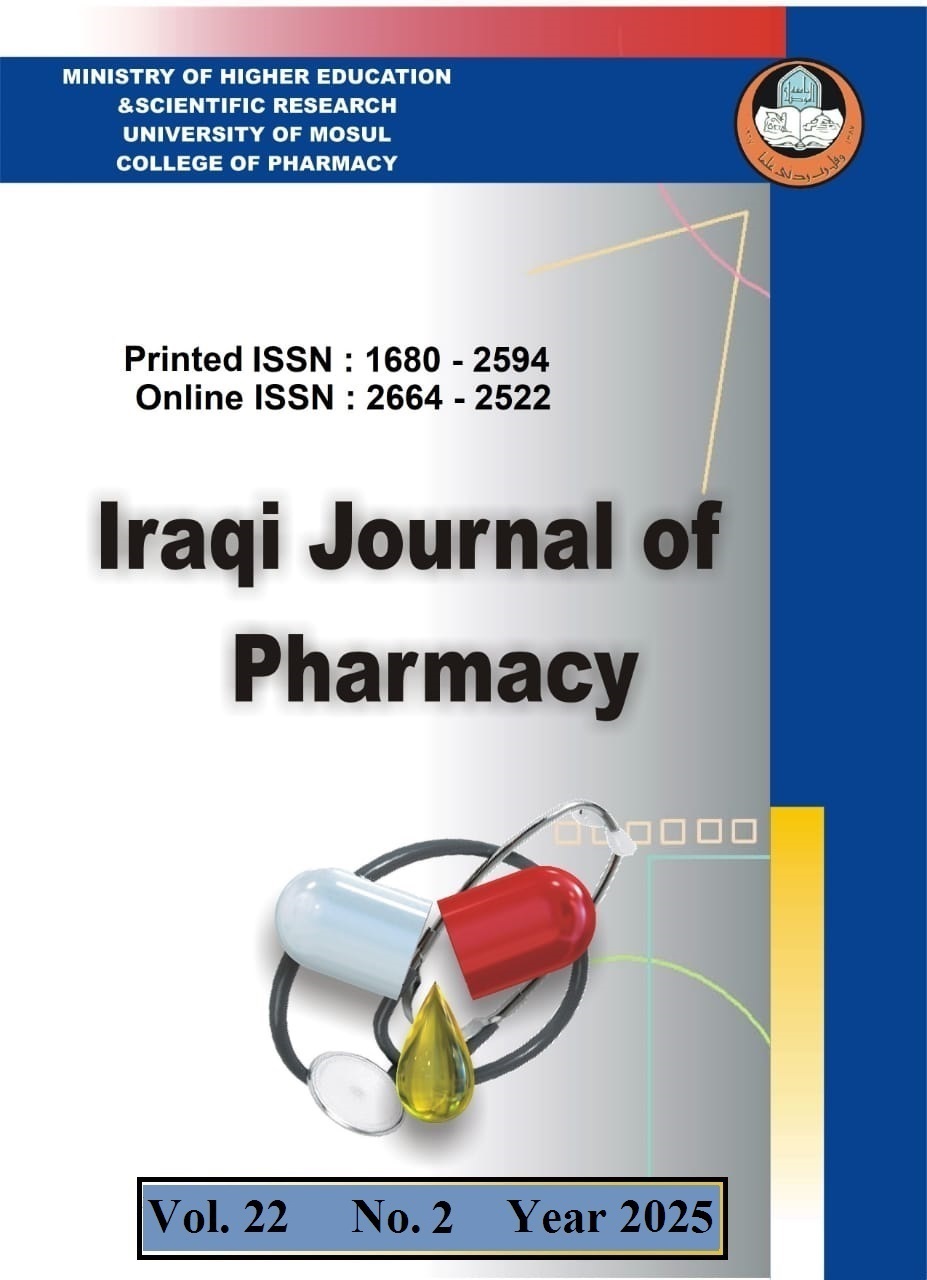Volume 20 Issue
Published: 2023-12-01
Contents
Research Paper
Systemic Adverse Effects of Topical Clobetasol and Counterfeit Cosmetic Products on Iraqi Women
Teeba H. Sagban, Ausama Ayob Jaccob, Abdulla Ayob Yaqoub, Huda Khadim
Background: Topical corticosteroids (TCs) are widely used for dermatologic diseases. Unfortunately, there exists many adverse effects (local and systemic). These adverse effects are comparable to...
DOI: 10.33899/iphr.2023.143457.1061
Evaluation of Various In-vitro Biological Activities of Crude Quince Seed Ethanolic Extract
Raghad Riyadh Khalil
Background: for a long time, natural bio-actives have been used to treat, cure, and prevent illnesses. Fruit seed crude extracts have been found to have various beneficial biological activities,...
DOI: 10.33899/iphr.2023.144158.1063
Exploring the Antimicrobial Activity of Quince Seeds Extracted by Two Different Methods
Eman Tareq Mohammed
Background: The rise of resistance to numerous effective antimicrobic drugs and the necessity to investigate alternative agents to address this emerge are conspicuously underscored. Aim: The aim is...
DOI: 10.33899/iphr.2023.144159.1064
Thermosonication-Catalyzed Synthesis of New 3-Esterified Coumarins as Biocompatible Antitumor Candidates
Sawsan Hasan Hammodi
Background: Coumarin chemical moiety and its-based molecules attracted a lot of research attention by chemists of natural products and organic synthesis. This attention works in two directions:...
DOI: 10.33899/iphr.2023.144182.1066
Histological and Morphometric Effect of Amiodarone on the Ovary in Adult Female Albino Rats
Zahraa Abd-Alkader Taboo
Background and objectives: Amiodarone is an antiarrhythmic medication used to treat abnormal heart rhythms. This study aimed to analyse the histological variations in ovarian follicles of rats...
DOI: 10.33899/iphr.2023.144294.1067
Review Paper
Synthesis and Pharmacological Profiles of 6,7-Dihydroxycoumarin and Its Derivatives: A Concise Review
Yasser Fakri Mustafa, Nameer Mazin Zeki
Background: Esculetin, scientifically referred to as 6,7-dihydroxycoumarin, functions as the primary bioactive constituent found in Cortex Fraxini (commonly known as ash bark), an ancient Asian...
DOI: 10.33899/iphr.2023.143017.1059
Statin Gastroprotective Mechanisms Independent of Gastric Acid Suppression
Hani M. Almukhtar, Dilgash A Abdullah
Background: Statins have demonstrated various beneficial clinical outcomes, not only in patients with elevated cholesterol levels but also in those with normal levels, a collective phenomenon known...
DOI: 10.33899/iphr.2023.142864.1056
Mirabegron-Induced Smooth Muscle Relaxation: Review of the Suggested Mechanisms
Rahma Saadaldain Almallah, Hani M. Almukhtar
Background: Mirabegron operates through a distinct mechanism compared to antimuscarinic agents. Its activation of 3-adrenoceptors results in the relaxation of the bladder during the filling phase...
DOI: 10.33899/iphr.2023.142851.1057
The Effect of Cilnidipine on Insulin Sensitivity
Maha Abdalwahab Mahmood, Shatha Hani Mohammad
Background: Cilnidipine, a common hypertension medication, is now being studied for its potential to improve insulin sensitivity, which plays a key role in regulating blood sugar levels. Recent...
DOI: 10.33899/iphr.2023.143299.1060
Angiotensin-Converting Enzyme Inhibitors and Adipokines: The Role of Visfatin and Apelin in Cardiovascular Disease Management
Yaseen Khamees Jumaah, Zainab Haitham Fathi, Jehan Abdulwahab Mohammad
Background: Angiotensin-converting enzyme (ACE) Inhibitors are medications pivotal in cardiovascular disease management, impacting the renin-angiotensin system which plays a critical role in...
DOI: 10.33899/iphr.2023.143923.1062








